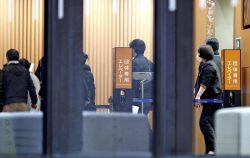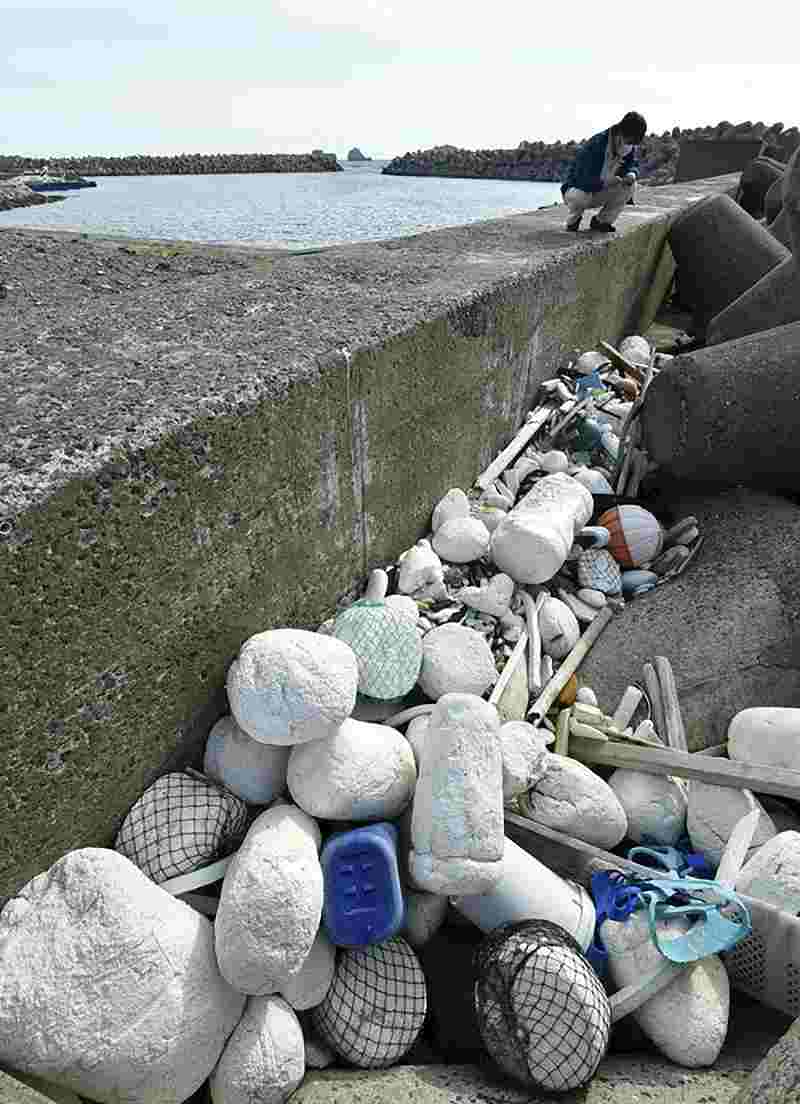
Marine debris that washed ashore is piled up between a sea wall and tetrapod concrete structures near a jetty on Okinoshima island on Nov. 21.
December 4, 2021
Marine debris including Styrofoam, plastic bottles and discarded fishing gear has been washing ashore on Okinoshima island, a World Heritage site about 60 kilometers off Kyushu.
Although the island belongs to the city of Munakata, Fukuoka Prefecture, access is restricted because it is regarded as a sacred residence of Shinto deities.
The job of cleaning up this debris has fallen on priests from the Munakata Taisha shrine on Kyushu. However, they have been finding that garbage is accumulating in between the tetrapod concrete blocks that prevent erosion and protect the island’s harbor, which is complicating the problem.
There is abundant fishing in the waters around the island because of the warm Tsushima Current, but the large amount of marine debris is threatening this ecosystem.
“The beautiful ocean has now become an ocean of garbage,” said Satoko Seino, an associate professor of Kyushu University’s Graduate School of Engineering who is an expert in coastal environmental conservation sciences. “It’s basically a disaster situation.”
The entire island of Okinoshima itself is worshipped, with its ancient ruins of religious ritual sites and rich natural environment. Before even setting foot on the island, visitors must first purify themselves in the sea. But even this place for misogi purification is being fouled with plastic bottles, many bearing labels in foreign languages, and other pieces of plastic.
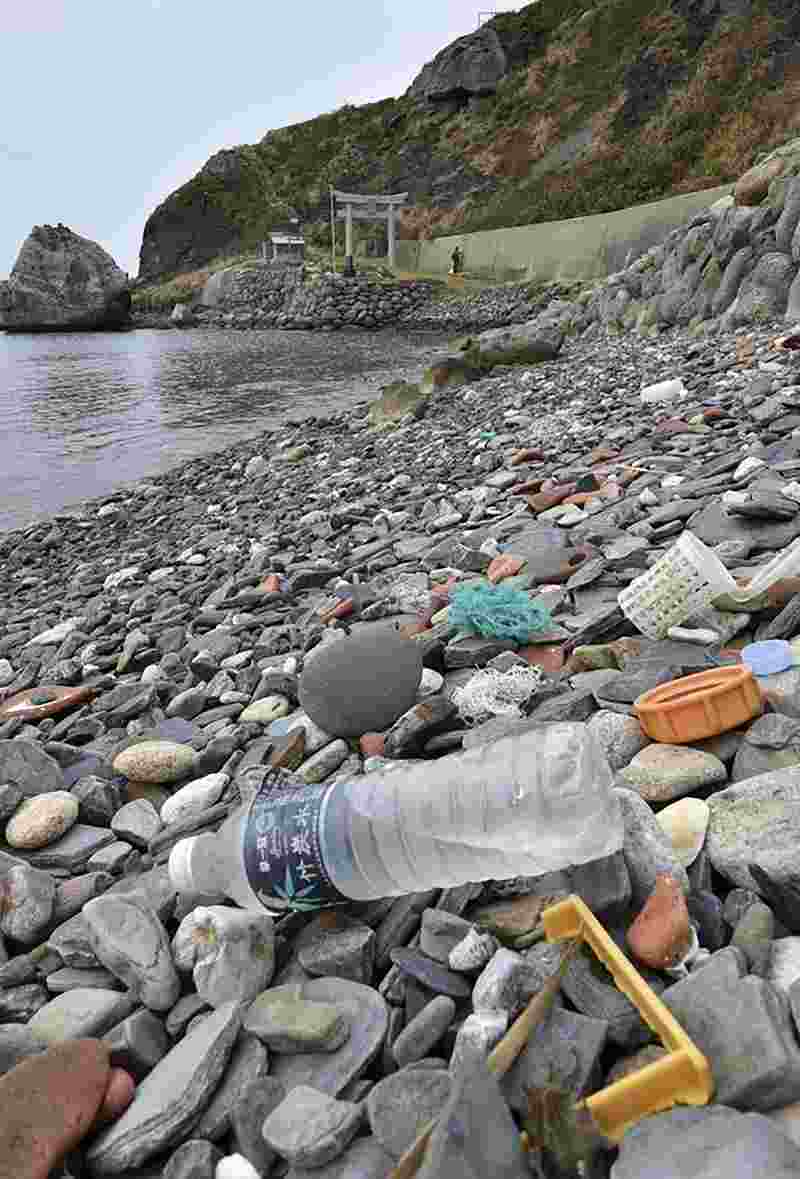
Plastic bottles and other pieces of plastic are seen near the misogiba purification site on Okinoshima island on Nov. 21.
Seino has been dealing with marine pollution for nearly 20 years. She has confirmed that trash is carried by the Tsushima Current from the East China Sea and has been accumulating on the island since about 2000, when Asian economies began rapidly growing.
Research into the origins of the plastic bottles collected on Okinoshima island and its surrounding area revealed that the number of bottles from Japan, China and South Korea was about the same.
“First off, if Japan can’t lower [the number of plastic bottles] to zero, we cannot say anything to other countries,” Seino said.
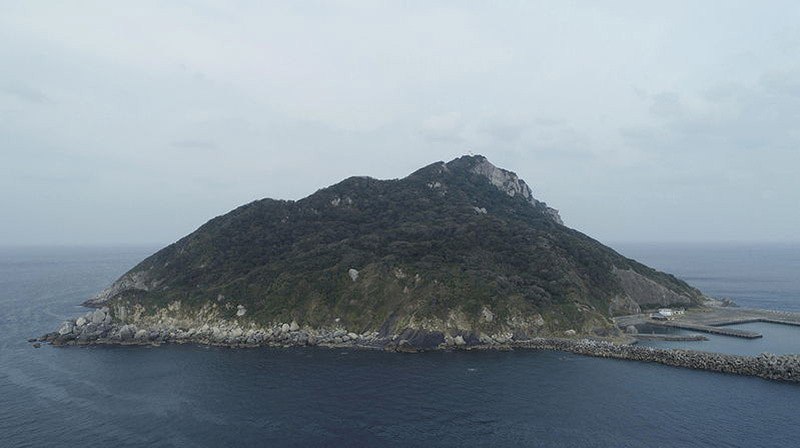
Okinoshima island
Meanwhile, on the Kyushu side of Munakata, Kosuke Gonda, a 37-year-old fisherman, has been cleaning up beaches with his colleagues. A serious issue concerning him is the trash that continuously drifts through the waters, as well as the trash that sinks to the bottom of the ocean.
Gonda and his colleagues have spotted at least three garbage patches, each of which is several kilometers wide, floating off Munakata. They will begin crowdfunding enough money to collect this trash.
Seino has held events in the prefecture to teach the public about the importance of marine environments. She also serves as the head of the Association for Protecting the Japanese Horseshoe Crab. Horseshoe crabs — sometimes referred to as living fossils — are an indicator species studied to determine the health of an ecosystem.
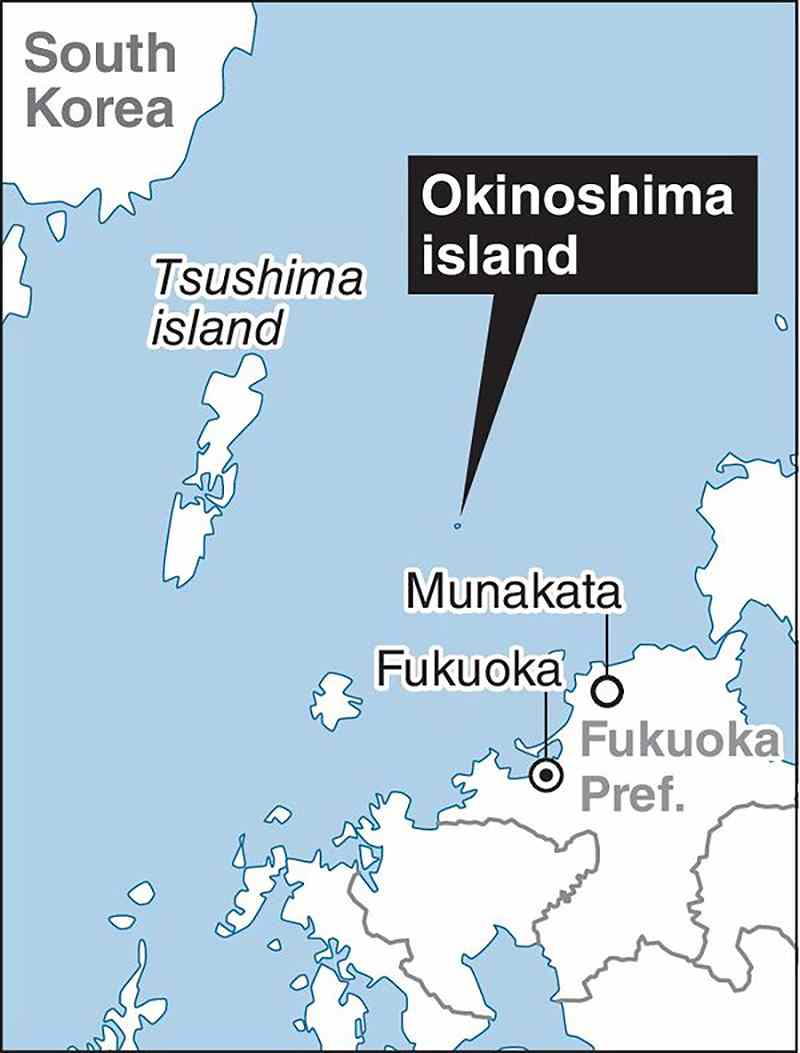
“The same is true for fishermen,” Seino said. “If the ocean becomes unviable for fishermen, it will affect the climate and our society.
“We may not be able to restore the ocean to what it once was in our generation, but it’s worth the effort in preparing for the ‘final battle,’” she added.
Top Articles in Society
-

Man Infected with Measles Reportedly Dined at Restaurant in Tokyo Station
-

Man Infected with Measles May Have Come in Contact with Many People in Tokyo, Went to Store, Restaurant Around When Symptoms Emerged
-

Woman with Measles Visited Hospital in Tokyo Multiple Times Before Being Diagnosed with Disease
-

Australian Woman Dies After Mishap on Ski Lift in Nagano Prefecture
-

Foreign Snowboarder in Serious Condition After Hanging in Midair from Chairlift in Nagano Prefecture
JN ACCESS RANKING
-

Japan PM Takaichi’s Cabinet Resigns en Masse
-

Japan Institute to Use Domestic Commercial Optical Lattice Clock to Set Japan Standard Time
-

Israeli Ambassador to Japan Speaks about Japan’s Role in the Reconstruction of Gaza
-

Man Infected with Measles Reportedly Dined at Restaurant in Tokyo Station
-

Videos Plagiarized, Reposted with False Subtitles Claiming ‘Ryukyu Belongs to China’; Anti-China False Information Also Posted in Japan



